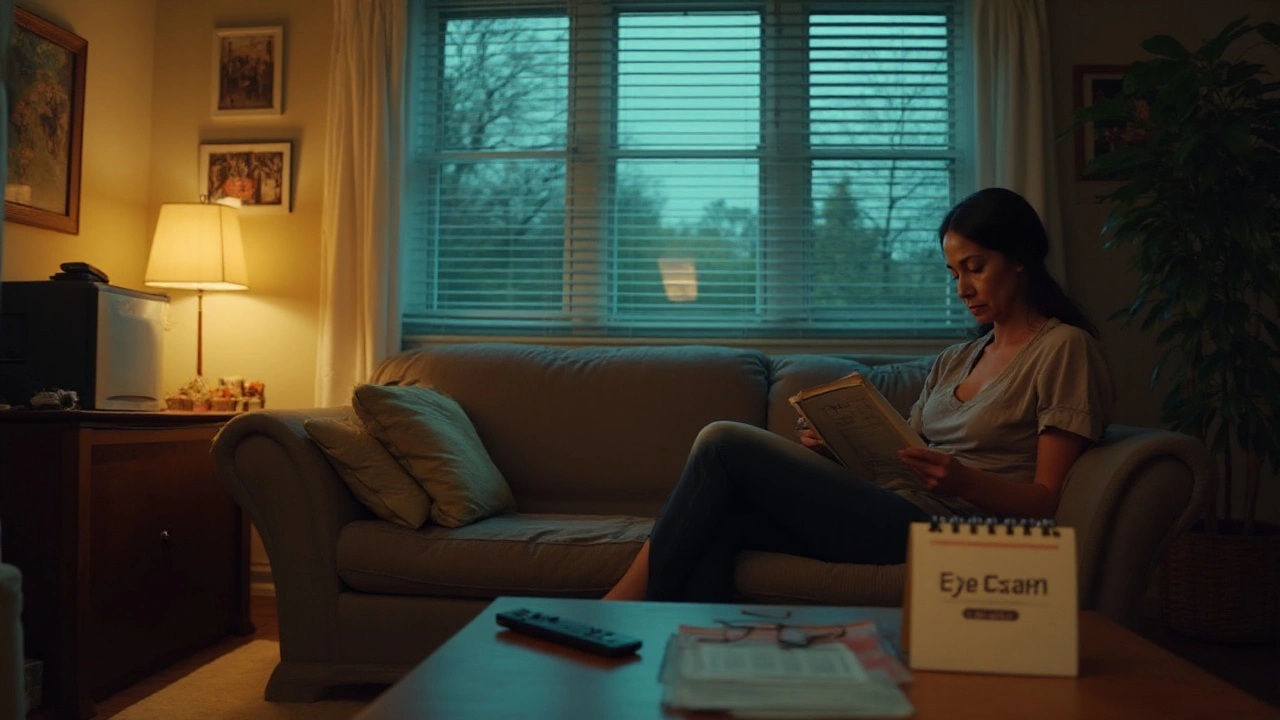Optic Nerve Damage: What It Is and How It Affects Your Vision
Ever wondered why your vision gets blurry or you see dark spots? The culprit is often the optic nerve – the cable that carries visual info from your eye to your brain. When this nerve is hurt, the signal gets scrambled and you notice vision problems.
Why the Optic Nerve Gets Hurt
There are a few common reasons the optic nerve goes bad. Glaucoma is the most famous; high pressure inside the eye squeezes the nerve over time. Another cause is optic neuritis, an inflammation that often shows up with sudden vision loss, especially in younger adults. Trauma, like a hard hit to the head, can also damage the nerve directly. Lastly, blood‑flow issues such as ischemic optic neuropathy happen when the tiny vessels feeding the nerve get blocked.
Spotting the Warning Signs Early
Early signs are easy to miss, but catching them can save your sight. Look out for:
- Blurry or hazy vision that doesn't improve with glasses.
- Loss of peripheral (side) vision, creating a tunnel‑like view.
- Seeing flashes of light or colorful spots.
- Pain with eye movement – often a sign of optic neuritis.
- Sudden, painless loss of vision in one eye.
If any of these pop up, see an eye doctor right away. The faster you act, the better the chances of stopping further damage.
Doctors use a few simple tests to check the optic nerve. An eye pressure check (tonometry) spots glaucoma early. A visual field test maps what you can see at the edges. Imaging like OCT (optical coherence tomography) shows the thickness of the nerve fibers, letting doctors see damage before you notice it.
When it comes to treatment, it depends on the cause. For glaucoma, eye drops that lower pressure are the first line. Some people need laser therapy or surgery if drops aren’t enough. Optic neuritis often clears up on its own, but steroids can speed up recovery. If a blood‑flow problem is the issue, doctors may give medications to improve circulation.
Besides medical care, a few lifestyle tweaks can protect the optic nerve. Keep your blood pressure and cholesterol in check – both affect eye blood vessels. If you smoke, quit, because smoking narrows those tiny vessels. Regular eye exams, especially after age 40, catch issues before they become serious.
In short, optic nerve damage is a serious but manageable problem. Knowing the signs, getting prompt eye exams, and following treatment plans can keep your vision sharp. If you notice anything odd with your sight, don’t wait – book that appointment and protect your eyes today.

Glaucoma Basics: Symptoms, Diagnosis, Treatment & Prevention
Glaucoma steals vision quietly. Learn what it is, who’s at risk, symptoms to watch, how it’s diagnosed, treatment options, and what to do next.